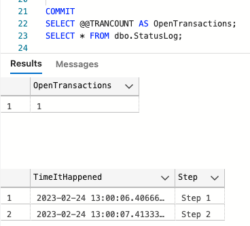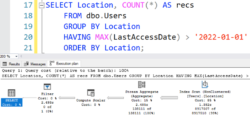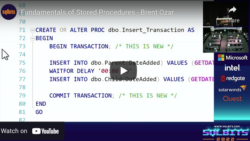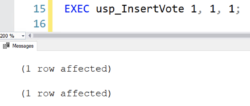FOR XML PATH Changed The Way I Think About T-SQL #TSQL2sday
4 Comments
The first time I saw FOR XML PATH being used to generate a comma-delimited list, I think I stared at it, shook my head to clear the cobwebs, stared at it some more, and then closed the code editor thinking it was complete witchcraft. And that same thing probably happened the next several times, too.…
Read More

















